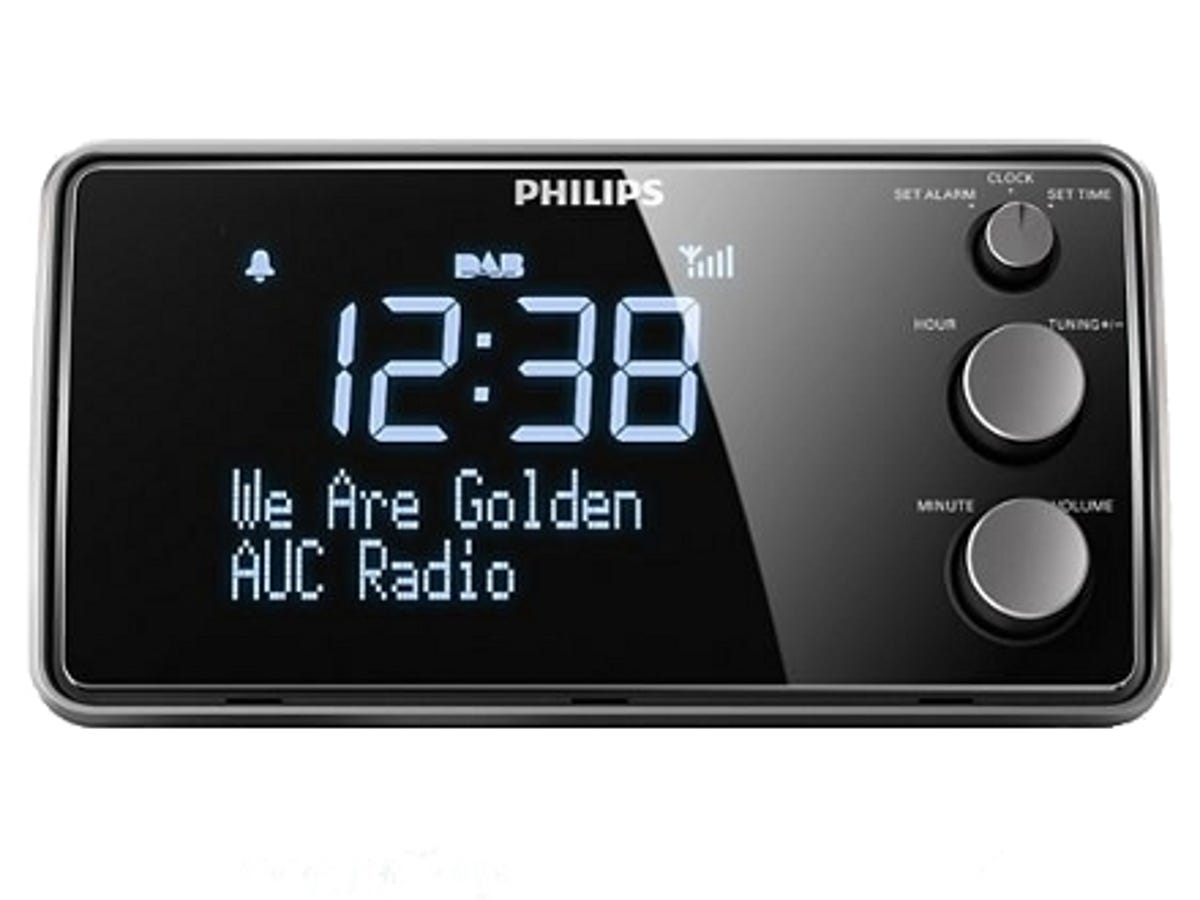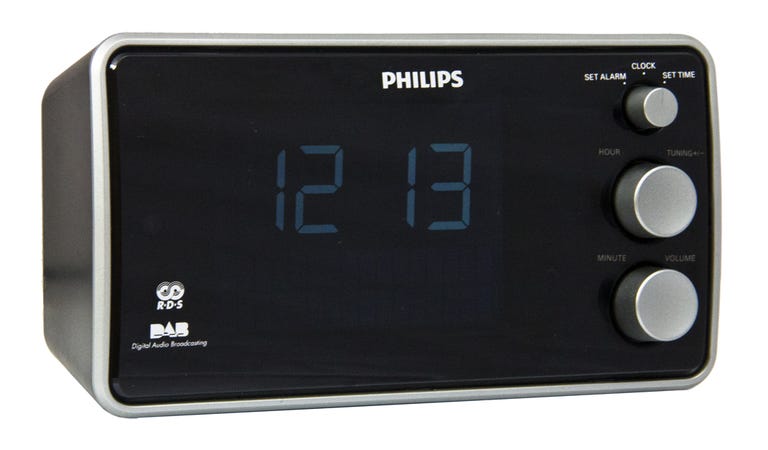 Why You Can Trust CNET
Why You Can Trust CNET Philips AJB3552/05 review: Philips AJB3552/05
Despite an uninspiring speaker, the Philips AJB3552/05 is among the best bedside radios we've come across, thanks to its large display, straightforward design, and super-strong DAB and FM tuners.
At around £60, the Philips AJB3552/05 digital-radio alarm clock isn't cheap, but its rock-solid tuners and smart looks do go some way to justifying the price. Some clever design considerations also show that Philips has spent at least as long thinking about form as it has function, making for one of the best bedside radios you can buy.
The Good
The Bad
The Bottom Line
Set-up
Plug the radio in and you're ready to go. There's no real set-up to speak of, as the AJB3552/05 takes the time from the DAB multiplex the first time you switch it on. At that point it also performs an initial scan, as a result of which it identified an impressive range of stations in our test area, despite the fact that the aerial is nothing more than a feeble wire dangling from the back of the body. Indeed, in our tests it could hold its own against more expensive desktop sets with extendable aerials on both DAB and FM.
You can auto scan on both bands and, if you find that the AJB3552/05 is pausing too often on FM, you can adjust the tuner's sensitivity so that it only stops on the strongest stations. There's a 'prune' feature for DAB that removes any stations you can't actually pick up in your area, which, as anyone who lives outside of a city centre will know, is a boon.
Controls
With 40 presets split equally between FM and DAB, there's no reason why you should need to fiddle too much with the controls once you've set the radio up. There's no way to access the presets directly, though, as there are no numbered buttons, so instead you have to click back and forth through the stored list until you find the one you want. This makes the presets feature more of a means to filter out the stations you don't want than to store the ones you do, as the modus operandi is effectively the same as that for navigating the regular stations list.
This point aside, it's clear that Philips' designers had bleary-eyed bed-bound users in mind when sketching out this radio's controls. The snooze button -- here called 'repeat alarm' -- is an easily tapped bar on the top of the case, as you'd expect, but the other controls that you'll need to access most often have been clustered on the front, rather than the top, so you can see them easily from bed.

The volume and tuner dials double as the controls for setting the time, with a three-way knob above them switching between the clock, alarm-set and time-set features. There's a neat alarm wizard that lets you set up some defaults, including the days on which the alarm should operate -- daily, weekends, weekdays or just once on a specific date and month that you set -- and how long you want it to play for, from 15 to 60 minutes.
Display
The display is enormous, with each of the clock digits sitting 21mm tall, and the scrolling data and station name a good 8mm from top to toe. This will be a boon for anyone who needs to wear glasses and has difficulty reading a conventional clock when they wake up. The display is sensitive to its surroundings, too, dimming as the light about it fades, and brightening in daylight.
Sound quality
The sound quality isn't great. The AJB3552/05 is fine for waking up to or using in the kitchen, but you wouldn't want to make it your only radio as it lacks depth. Pop music errs towards the upper end of the dynamic range and voices sound thin.
The radio has a dynamic bass-enhancement button, which makes a big difference, but, as we can't imagine anyone turning it off once they've switched it on, we wonder why Philips hasn't made it the default setting and removed the button. For DAB, there's also dynamic range compression, which uses supplementary data sent out with the broadcast to enhance weaker elements in the audio stream
Output peaks at 1.5W, which should be enough to wake you from the deepest slumber.
Speaker
The speaker is hidden around the back to preserve the unit's clean lines, which makes it one of the most attractive radios we've encountered for some time. It's small and discreet, and the front comprises a single piece of curved black plastic that effectively masks the border between the screen and case. Despite being glossy and picking up some reflections in bright light, the radio is impressively resistant to fingerprints, so you won't forever be wiping it down.
Conclusion
In terms of pure ease of use, you'll have to look hard to find a radio that's better suited to standing beside your bed than the Philips AJB3552/05. We're happy to cut the speaker some slack on account of the scenario in which it'll be used, but, if your bedroom is more than just a place to sleep and you want a better general-purpose unit, consider spending slightly more to bag yourself a PURE Digital Evoke Mio, which you can find online for around £90.
Edited by Charles Kloet


